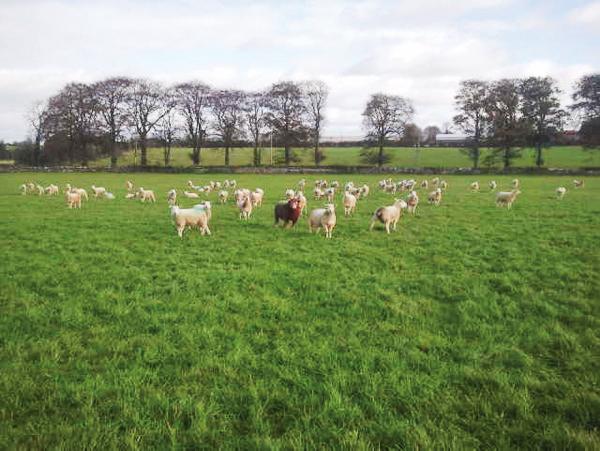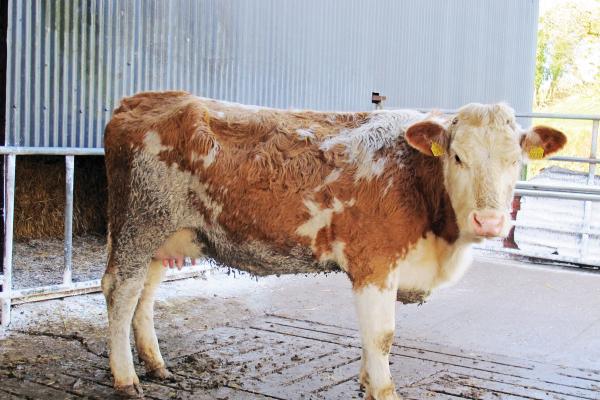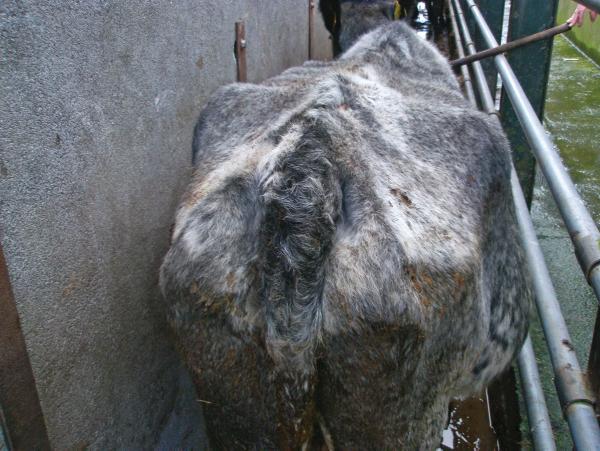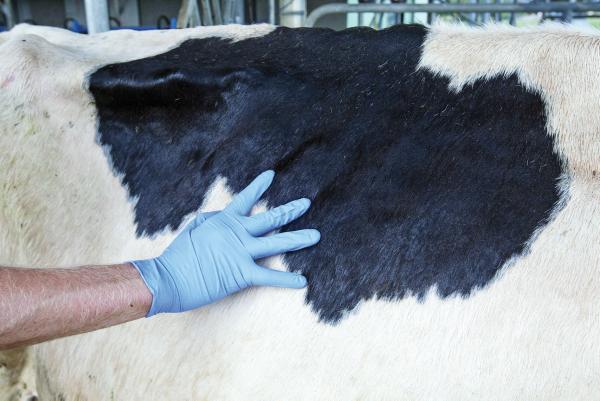It allows for the subjective assessment of thin and fat cows (BCS 1 = extremely thin cows and BCS 5 = extremely fat cows).
A late November or early December herd condition score is the ideal time to segregate cows for preferential feeding over the winter, or to decide to dry off a cow earlier than planned to allow her build up body reserves.
Condition scoring before cows go indoors full-time can help minimise the cost of putting condition on cows. By matching calving date with condition score, you can buy time to replenish fat reserves.
The key is to identify cows getting too fat or too thin in time to allow you group cows over the winter feeding period.
The window for putting condition or fat on cows is relatively small for seasonal spring calving herds. Why is this?
Most cows get 8 to 10 weeks of a dry period while younger cows might get 12 weeks dry.
Firstly, you need to minimise feed for the first week or ten days after drying off and secondly the calf will use up most of the energy supplied as the cows gets closer to calving. This leaves a short window in between to improve condition score.
The alternative is to extend the dry period by drying off early and allowing the cow a longer dry period, or, if that is not possible, supplementing silage with meal to a portion of the herd in need of more condition.
Important points about body condition scoring
Thin cow
A November condition score can pick out the real thin cows (as per photo) where you can see all the individual long ribs and her overall appearance is sharp. This cow is ideal for an extended dry period or extra feed depending on her calving date.
Fat cow
Given the extended dry period that many dairy farmers are giving cows this year due to
quota supply issues, over-fat cows could be as much if not more of an issue than thin cows. Fat cows could be in a group that is getting average-quality silage or even restricted silage. Over-fat cows are as much of a problem as cows that are too thin. Cows that lose more than half a condition score after calving will have lower fertility.
Cows in crush
Some experts say they can condition score the cows in the field, but by far the best thing you can do is run the cows into the crush and handle each cow individually, feeling the long ribs, the short ribs and the tail head area. See more in video.
List cow number and score
Write down the tag number followed by the condition score. Match the condition scores to calving date. You can act on the results at the next milking. This will determine your next steps in terms of what grouping of cows needs to happen.
Targets
At drying off, cows should be in the range from 2.5 to 3 condition score. Ideally pre calving cows need to be in the range 3 to 3.5.
Three primary assessment points when handling cows:
1 – Long ribs2 – Loin or the short ribs3 – The pins near the tail head
It allows for the subjective assessment of thin and fat cows (BCS 1 = extremely thin cows and BCS 5 = extremely fat cows).
A late November or early December herd condition score is the ideal time to segregate cows for preferential feeding over the winter, or to decide to dry off a cow earlier than planned to allow her build up body reserves.
Condition scoring before cows go indoors full-time can help minimise the cost of putting condition on cows. By matching calving date with condition score, you can buy time to replenish fat reserves.
The key is to identify cows getting too fat or too thin in time to allow you group cows over the winter feeding period.
The window for putting condition or fat on cows is relatively small for seasonal spring calving herds. Why is this?
Most cows get 8 to 10 weeks of a dry period while younger cows might get 12 weeks dry.
Firstly, you need to minimise feed for the first week or ten days after drying off and secondly the calf will use up most of the energy supplied as the cows gets closer to calving. This leaves a short window in between to improve condition score.
The alternative is to extend the dry period by drying off early and allowing the cow a longer dry period, or, if that is not possible, supplementing silage with meal to a portion of the herd in need of more condition.
Important points about body condition scoring
Thin cow
A November condition score can pick out the real thin cows (as per photo) where you can see all the individual long ribs and her overall appearance is sharp. This cow is ideal for an extended dry period or extra feed depending on her calving date.
Fat cow
Given the extended dry period that many dairy farmers are giving cows this year due to
quota supply issues, over-fat cows could be as much if not more of an issue than thin cows. Fat cows could be in a group that is getting average-quality silage or even restricted silage. Over-fat cows are as much of a problem as cows that are too thin. Cows that lose more than half a condition score after calving will have lower fertility.
Cows in crush
Some experts say they can condition score the cows in the field, but by far the best thing you can do is run the cows into the crush and handle each cow individually, feeling the long ribs, the short ribs and the tail head area. See more in video.
List cow number and score
Write down the tag number followed by the condition score. Match the condition scores to calving date. You can act on the results at the next milking. This will determine your next steps in terms of what grouping of cows needs to happen.
Targets
At drying off, cows should be in the range from 2.5 to 3 condition score. Ideally pre calving cows need to be in the range 3 to 3.5.
Three primary assessment points when handling cows:
1 – Long ribs2 – Loin or the short ribs3 – The pins near the tail head 







SHARING OPTIONS